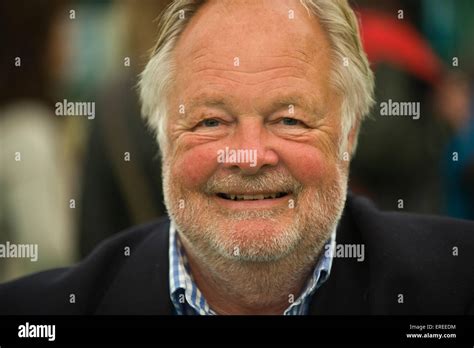A Quote by Stephen Jay Gould
We who revel in nature's diversity and feel instructed by every animal tend to brand Homo sapiens as the greatest catastrophe since the Cretaceous extinction.
Quote Topics
Related Quotes
The humanity and the humility, which are very different than the biological species homo sapiens. Humanity versus homo sapiens - very different things. We are biological creatures, we are animals, no doubt, but when you talk about "humando," you're talking about that particular kind of animals who are aware of their impending extinction, who have the capacity to be sensitive to catastrophe and disaster and calamity and profound crisis.
A billion homo sapiens are added every 11 years to the planet. The hypertrophy of a single species pushes other life-forms out of bed and into extinction. The decline of biological diversity is real and severe. The alarming loss of soil fertility, forest cover, and coral reef viability and the release of fossilized CO2 that nature put away 300 million years ago in its march toward greater diversity - all these "losses" and many others are the result of one life-form annihilating other life-forms in its immoral confusion of "dominion" with "domination."
The paradox of the human condition is expressed more in education than elsewhere in human culture, because learning to learn has been and continues to be Homo Sapiens' most formidable evolutionary task... It must also be clear that we will never quite learn how to learn, for since Homo Sapiens is self-changing, and since the more culture changes the faster it changes, man's methods and rate of learning will never quite keep pace with his need to learn.
Of the four billion life forms which have existed on this planet, three billion, nine hundred and sixty million are now extinct. We don't know why. Some by wanton extinction, some through natural catastrophe, some destroyed by meteorites and asteroids. In the light of these mass extinctions it really does seem unreasonable to suppose that Homo sapiens should be exempt. Our species will have been one of the shortest-lived of all, a mere blink, you may say, in the eye of time.
It must be stressed that there is nothing insulting about looking at people as animals. We are animals, after all. Homo sapiens is a species of primate, a biological phenomenon dominated by biological rules, like any other species. Human nature is no more than one particular kind of animal nature. Agreed, the human species is an extraordinary animal; but all other species are also extraordinary animals, each in their own way, and the scientific man-watcher can bring many fresh insights to the study of human affairs if he can retain this basic attitude of evolutionary humility.
Every culture from the Egyptians to the Mayans to the American Indians to the Bedouins created bestiaries that enabled them to express their relationship with nature. Ashes and Snow is a 21st-century bestiary filled with species from around the world. Nature’s orchestra includes not just Homo sapiens but elephants, whales, manatees, eagles, cheetahs, orangutans, and many others.
In the end I came to see that the true prophet of the modern world was Samuel Butler: when he suggested that the machine was an evolutionary development, destined to supersede man as the dominant species and reduce him to greenfly status, the status of machine-minder, homo mechanicus instead of homo sapiens; and to modify his nature accordingly.




































